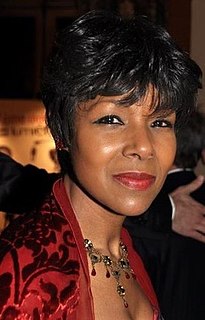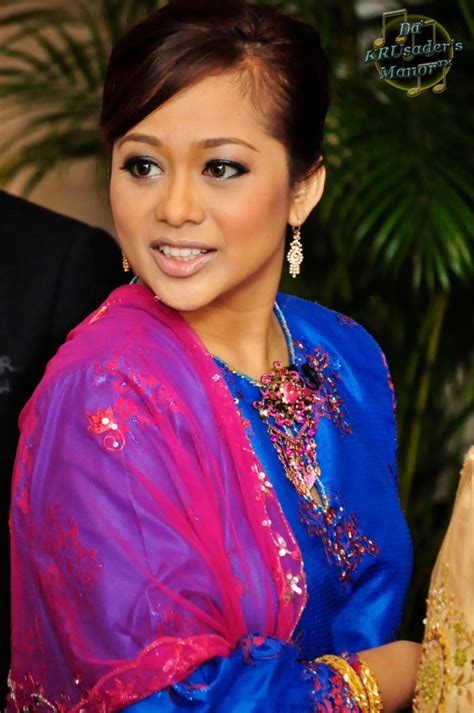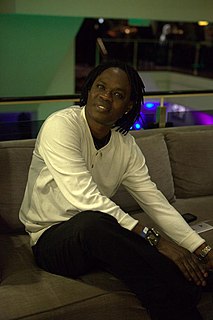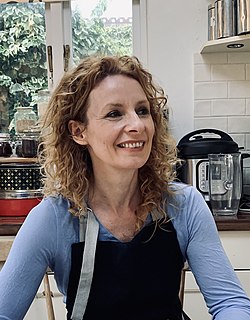A Quote by Jihan El-Tahri
African cinema doesn't have an African industry at all and that's where our problem arises. We come to all of these initiatives with a lot of suspicion because we're so inhabited by the notion of being colonized, the post-colonial thought that someone wants us to do something that is their interest and not ours and even it's not true, there's the suspicion of it like where is this going?
Related Quotes
When African-Americans come to France, the French show them more consideration than they would show an African or a Black Caribbean. When African-Americans come to France, the French people are like, 'Oh, wow. Oh my God.' But if it's an African, they're like, 'Whatever.' It's all because of the past, because of our history.
When you have an authority figure tell you something that distinguishes you, there's a little bit of a badge of courage or pride point that comes with it, and also some relief that the grownups actually have an answer for the problem. But, at the same time, there's suspicion and defensiveness, like, Why is the way I do things a problem? Maybe the way you do things is the problem. All of these things come with the very notion that you've been described.
I think if some people know anything about African cinema it's something like the The Gods Must Be Crazy, which is such an awful, condescending movie that debases African participation, and anything I can do to shift that and draw attention to rich and widely varied films that come from there- because there's all kinds of filmmakers from Senegal, you have Mambety, and Haroun with Grigris.
I don't think there are any pure Africans of the African Americans, but the African part of our history was pretty much taken away from us during slavery, so the 60s gave us a chance, because of the civil rights movement, to kind of re-examine and make some sort of formal connection to our African-ness.
Writing in African languages became a topic of discussion in conferences, in schools, in classrooms; the issue is always being raised - so it's no longer "in the closet," as it were. It's part of the discussion going on about the future of African literature. The same questions are there in Native American languages, they're there in native Canadian languages, they're there is some marginalized European languages, like say, Irish. So what I thought was just an African problem or issue is actually a global phenomenon about relationships of power between languages and cultures.
Trust, like love, is a word that has great power Everybody deserves their own space, in their own time. You are even entitled to keep secrets. But it is not secrets that destroys things, suspicion does. For it may take many years to build trust, sometimes.. all it takes is suspicion, you don't even need proof to destroy trust. So, if you say you can trust someone, you're admitting to something that is even greater than love. Trust, like love, is a word that has great power.
When I went back home, I was constantly being reminded, I'm an African woman, and so there are certain things I shouldn't do, certain ambitions that I should not entertain. That was a problem for me because I had never thought of myself as an African woman, never thought of myself as a woman to begin with. For me the limit was my capacity, my capability.
I use African-American, because I teach African Studies as well as African-American Studies, so it's easy, neat and convenient. But sometimes, when you're in a barber shop, somebody'll say, "Did you see what that Negro did?" A lot of people slip in and out of different terms effortlessly, and I don't think the thought police should be on patrol.
I did not like that name "world music" in the beginning. I think that African music must get more respect than to be put in a ghetto like that. We have something to give to others. When you look to how African music is built, when you understand this kind of music, you can understand that a lot of all this modern music that you are hearing in the world has similarities to African music. It's like the origin of a lot of kinds of music.
Cultures, when they meet, influence one another, whether people like it or not. But Americans don't have any way of describing this secret that has been going on for more than two hundred years. The intermarriage of the Indian and the African in America, for example, has been constant and thorough. Colin Powell tells us in his autobiography that he is Scotch, Irish, African, Indian, and British, but all we hear is that he is African.































